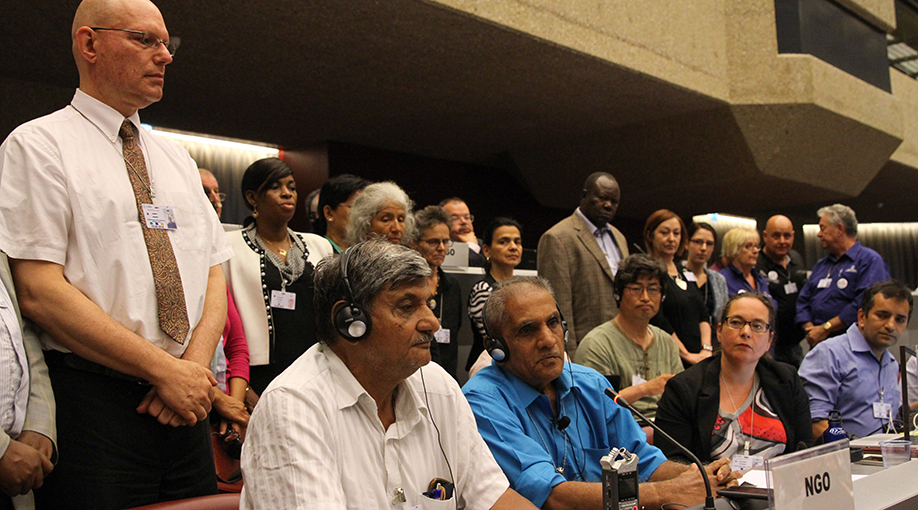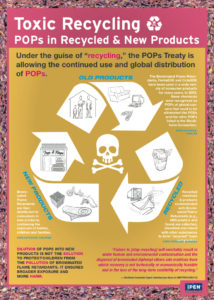The objectionable role of the EU in the international toxics negotiations

The EU has pushed dangerous standards for three toxic flame retardant chemicals widely used in building insulation, upholstery and electronics (HBCD, PentaBDE, and OctaBDE) at the UN Conference to the Basel, the Rotterdam and the Stockholm Conventions that took place from 4 to 15 May 2015 in Geneva.
These three toxic chemicals are listed in the Stockholm Convention for global elimination. They are ubiquitous in the environment globally and can disrupt human hormone systems, creating potential adverse effects on the development of the nervous system and children’s cognitive functioning.
 The EU proposal wants to keep these toxic flame-retardants in products and recycled products such as children’s toys, food containers and soft furnishings. The main argument for this move was the protection of the European recycling industry. However, Zero Waste Europe has already argued about the importance to ensure a toxic-free Circular Economy and reinforce product policies that will drive toxics out of the cycles of materials as a way to guarantee quality recycling in the future.
The EU proposal wants to keep these toxic flame-retardants in products and recycled products such as children’s toys, food containers and soft furnishings. The main argument for this move was the protection of the European recycling industry. However, Zero Waste Europe has already argued about the importance to ensure a toxic-free Circular Economy and reinforce product policies that will drive toxics out of the cycles of materials as a way to guarantee quality recycling in the future.
“Without clean production there will be no circular economy. Bridging between products, waste and chemicals legislation is a key aspect to make it work. Keeping this flame retardants is a step back for the circular economy”, said Joan Marc Simon, ZWE’s Executive Director.
Precisely, Zero Waste Europe together with FOEE, ChemTrust and the EEB recently called the EU to find the right balance between encouraging recycling and avoiding re-injecting hazardous substances into the economy, and made a joint presentation of some key principles that would ensure clean, effective and sustainable circular economy, including the removal of problematic substances from products at the design stage, the full compliance with chemical legislation for products applying for end of waste criteria, and appropriate marking, amongst other key demands.
The EU proposal in the Geneva UN Conference would not only allow toxic recycled products to be used by consumers in the EU, but it would also impact developing countries if wastes were imported there. Thus this move would transfer a toxic burden from the Global North to the Global South where the capacity to deal with contaminated waste is generally limited, potentially increasing health problems and general wellbeing.
African countries expressed deep concern regarding the EU’s position in Geneva. “We do not want toxic chemicals recycled into toys for African children and we do not think EU children should be playing with them either,” said Tadesse Amera, PAN Ethiopia. “The EU already sends us e-waste and now it seems they want to increase our toxic burden.”
Jindrich Petrlik from Arnika Association said, “As an EU-based public interest NGO we find it shameful to see the EU violating the integrity of the Stockholm Convention, and putting economic interests before human health and the environment. This is poisoning the circular economy.”
More info, download:
New Study: Toxic Toy or Toxic Waste: Old POPs in New Products
http://ipen.org/documents/toxic-toy-or-toxic-waste-old-pops-new-products-summary-decision-makers
Info Graphic: Toxic Recycling: POPs in Recycled & New Products